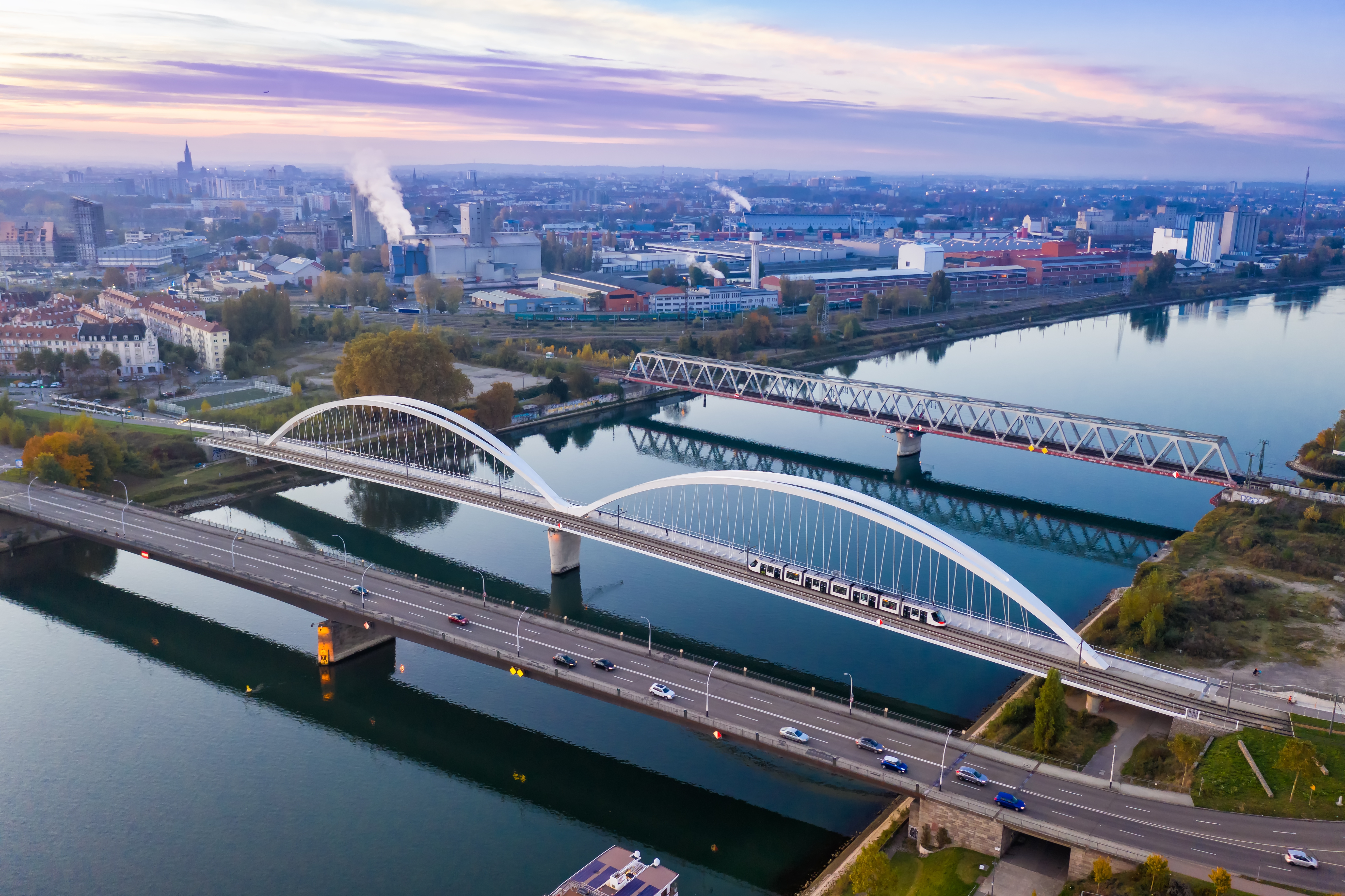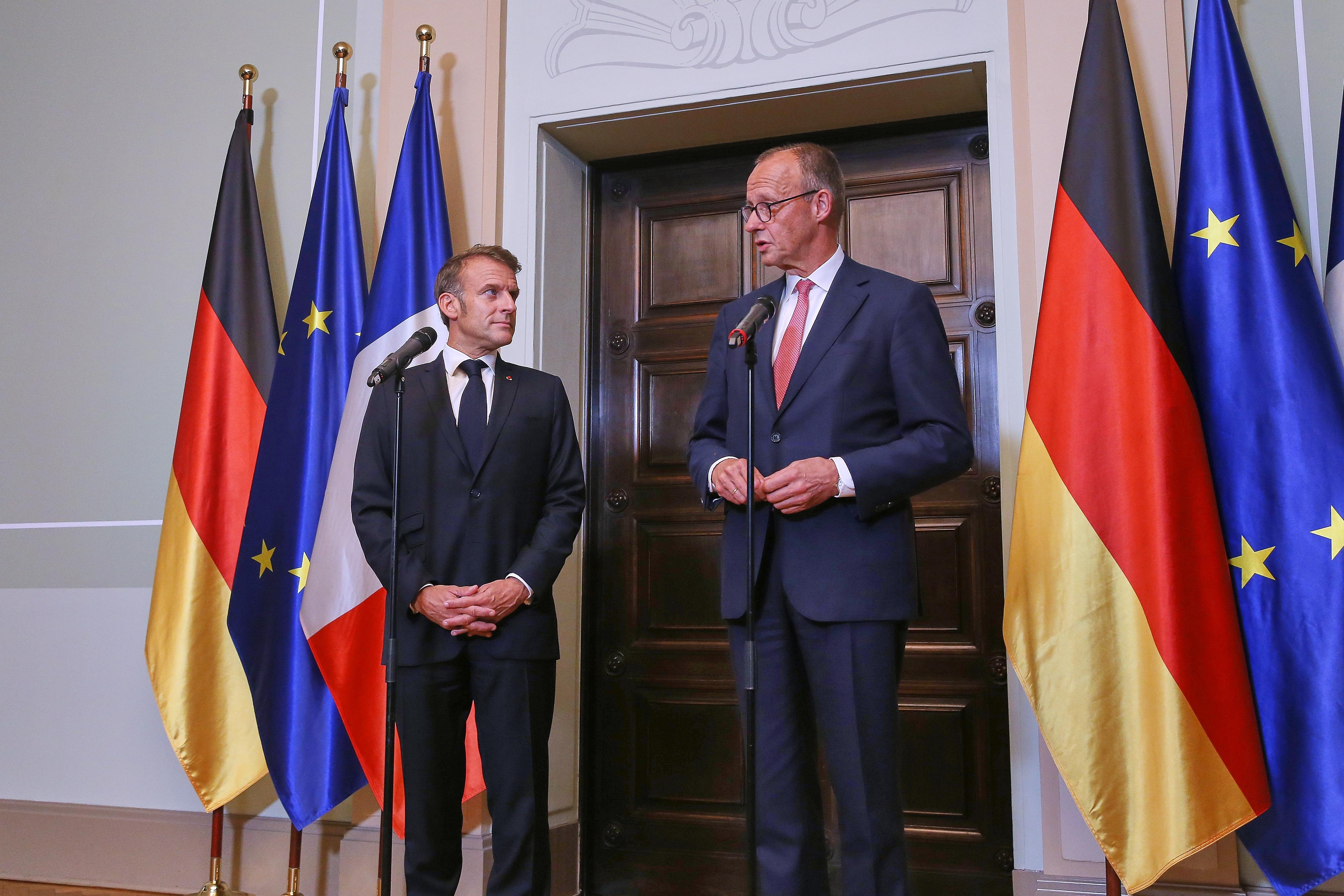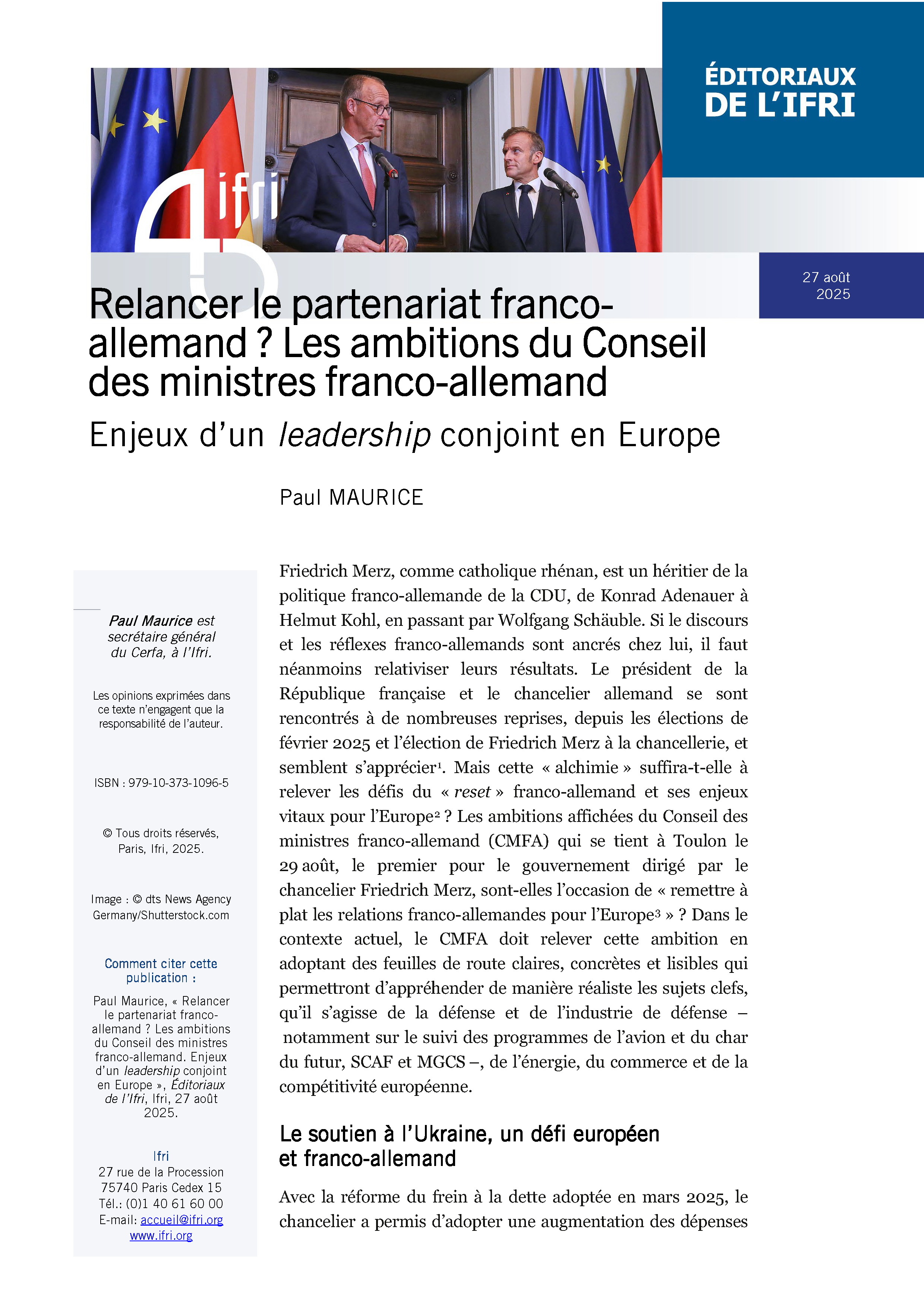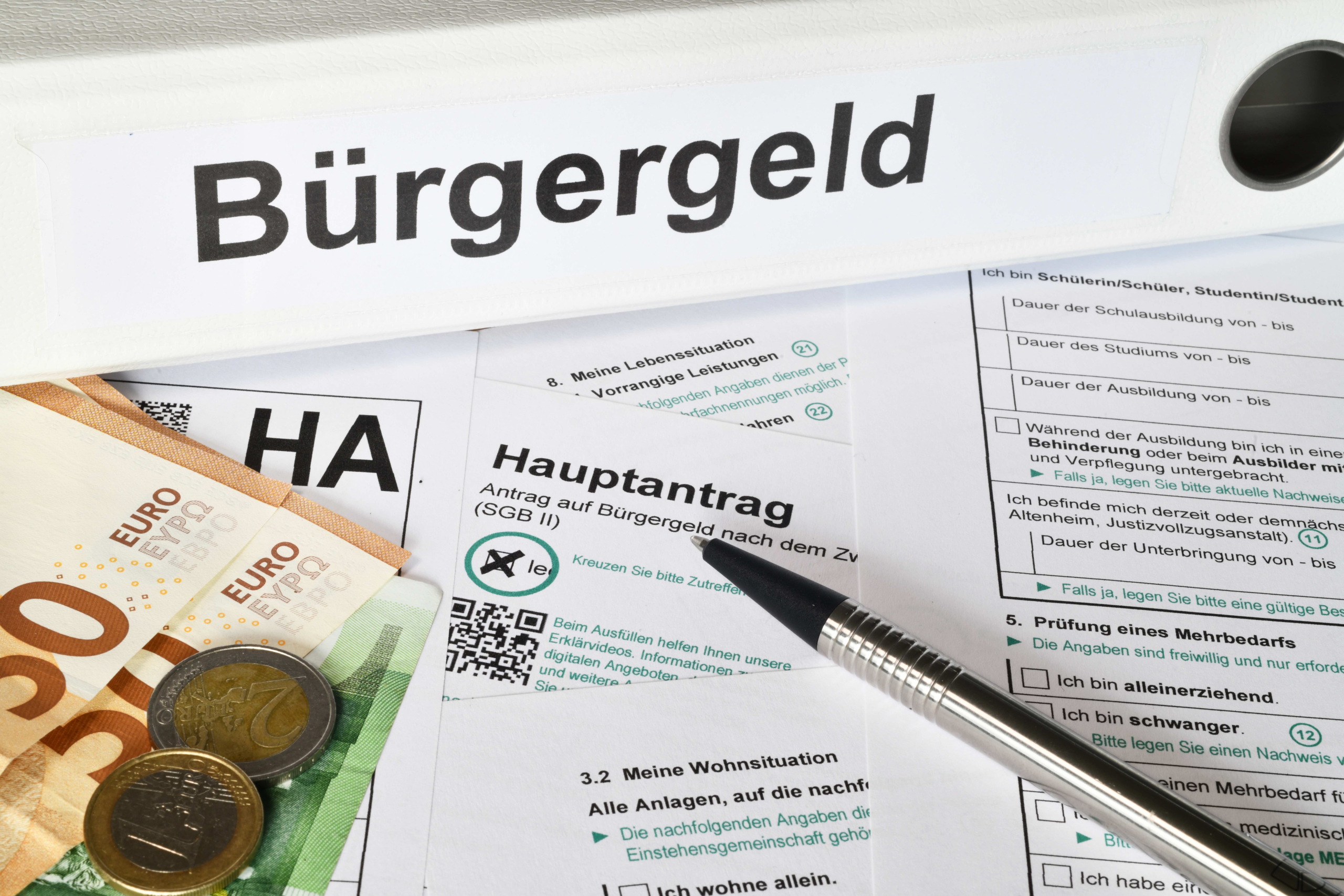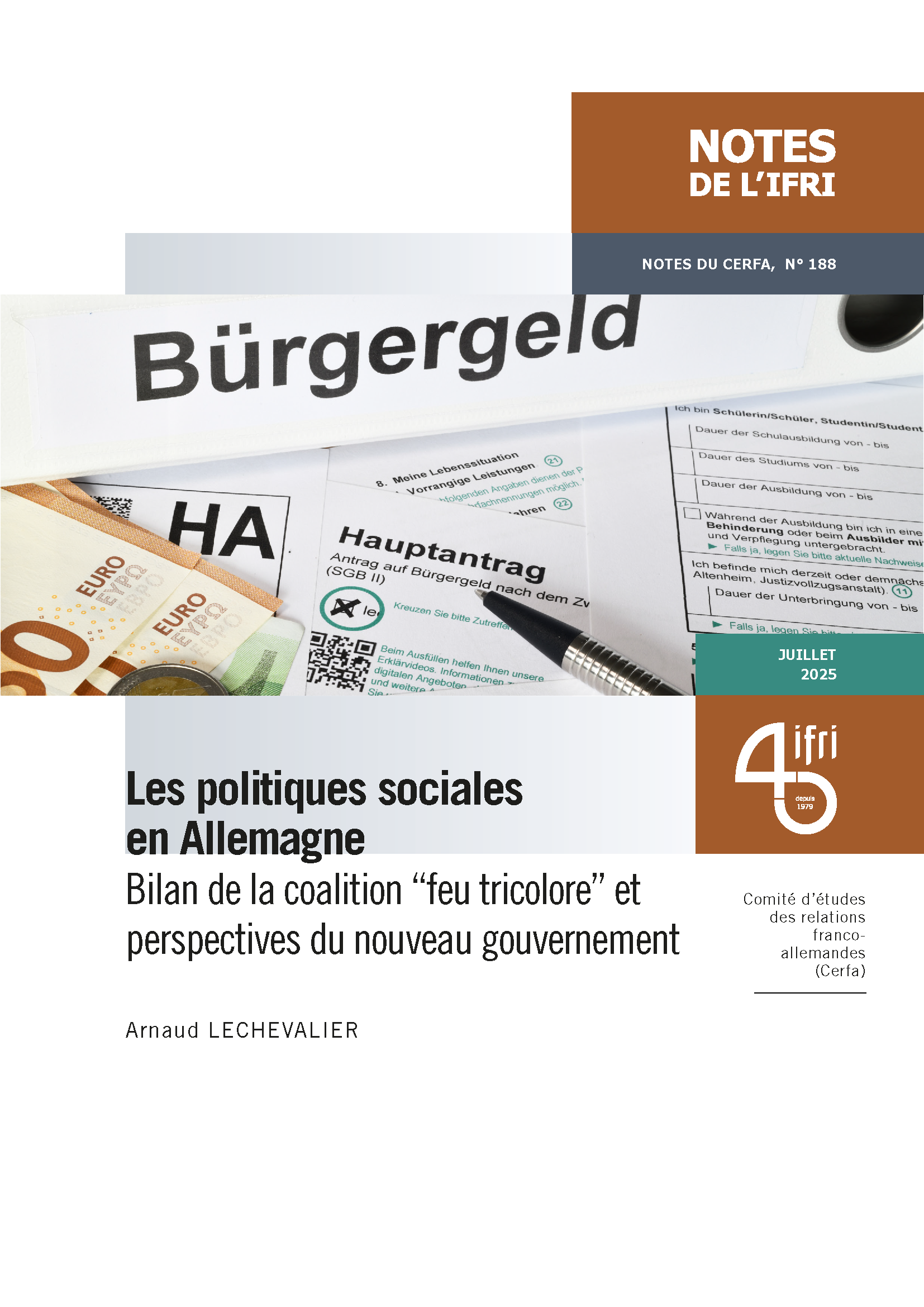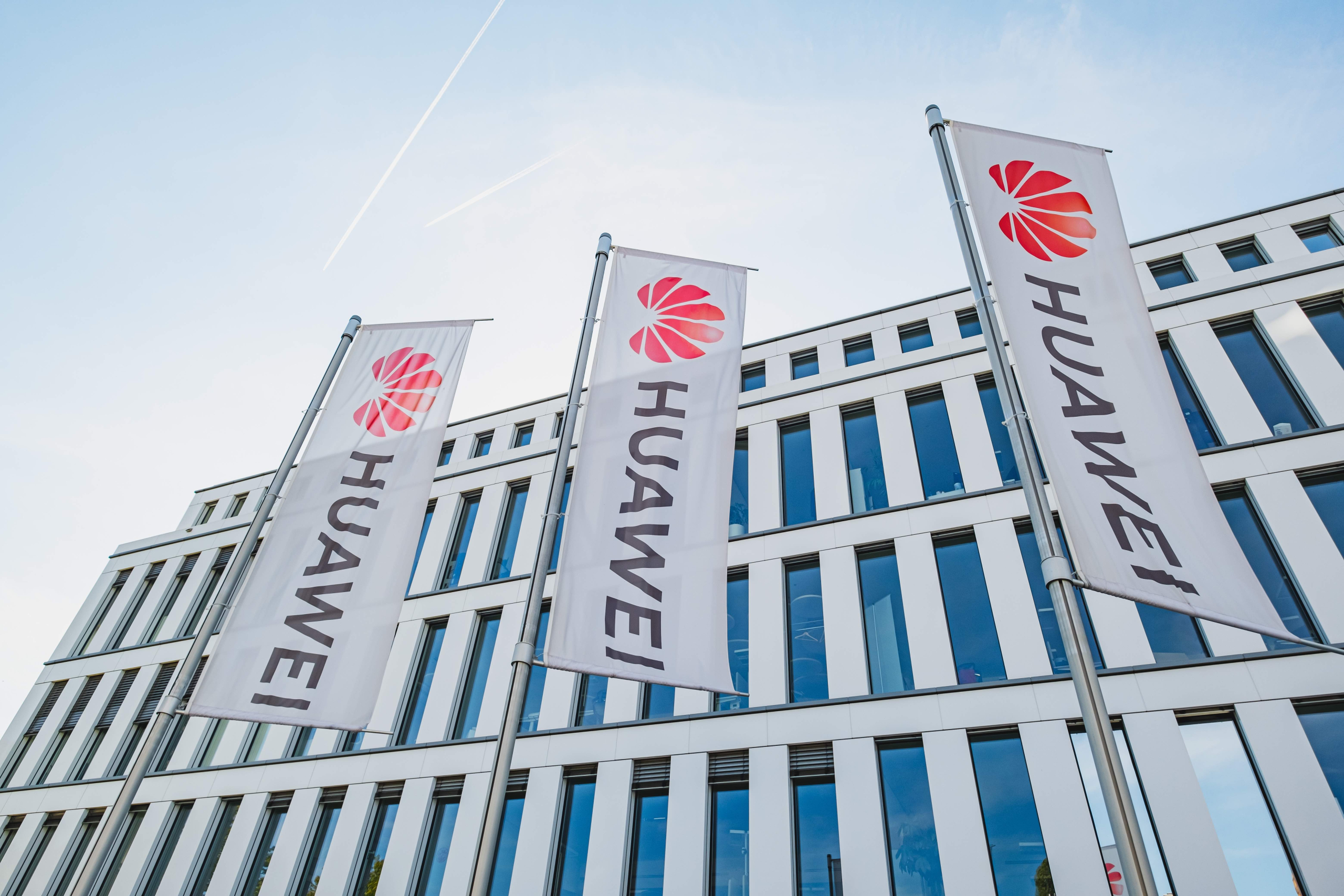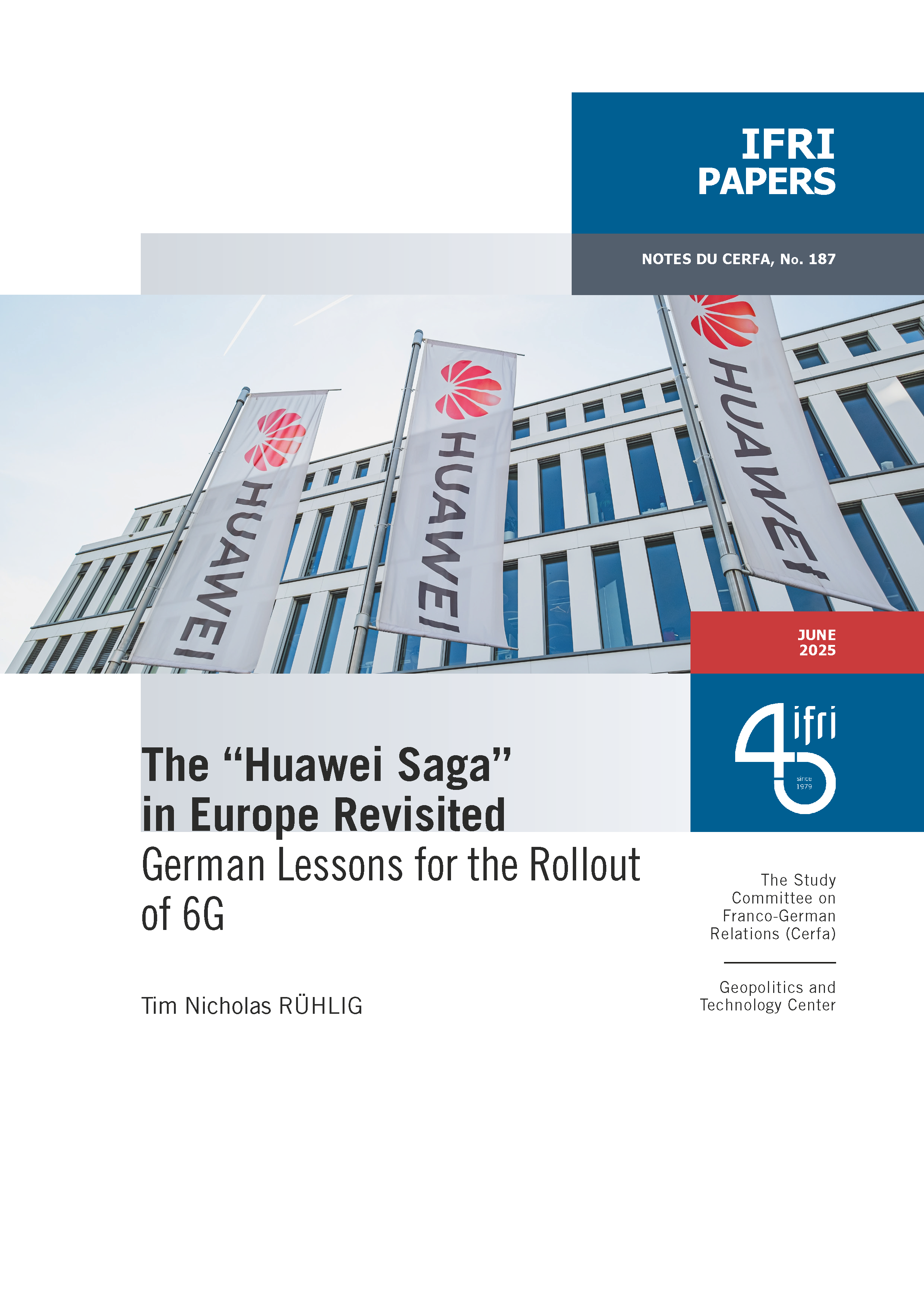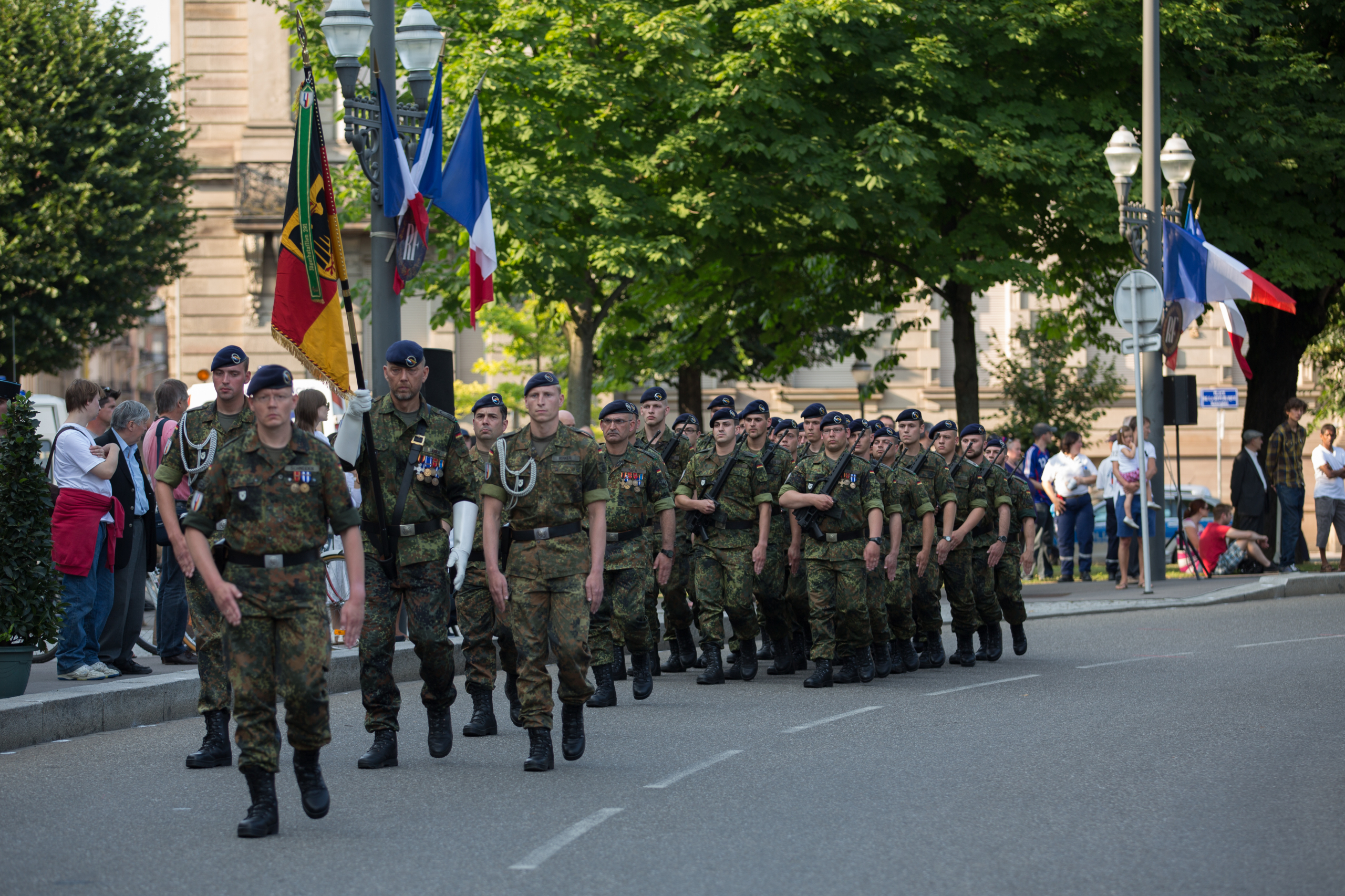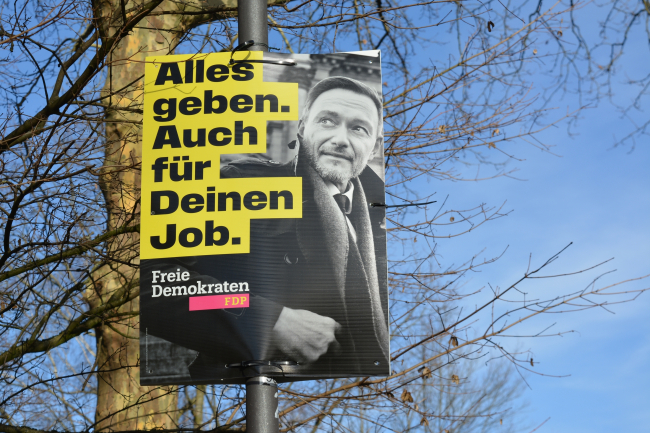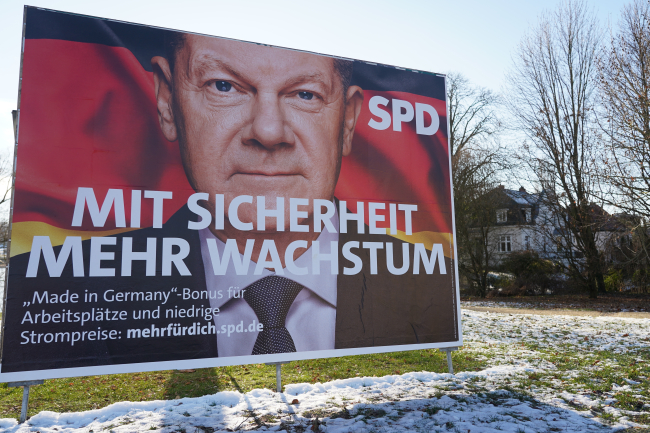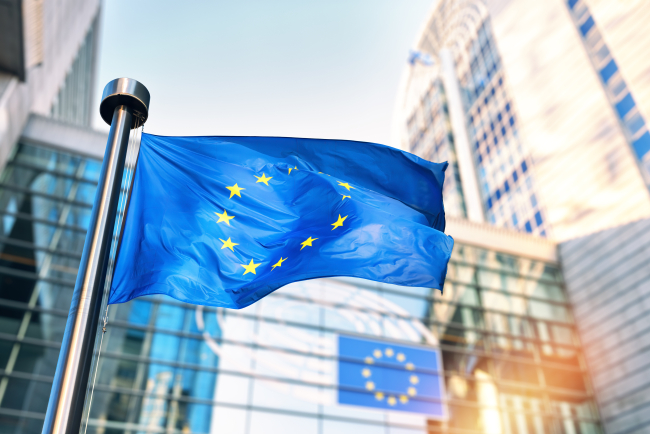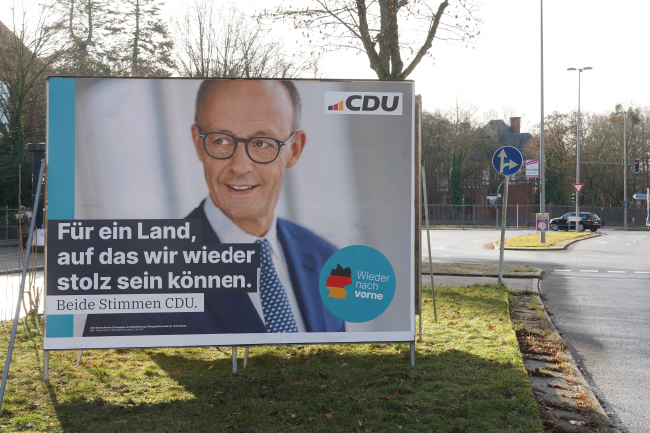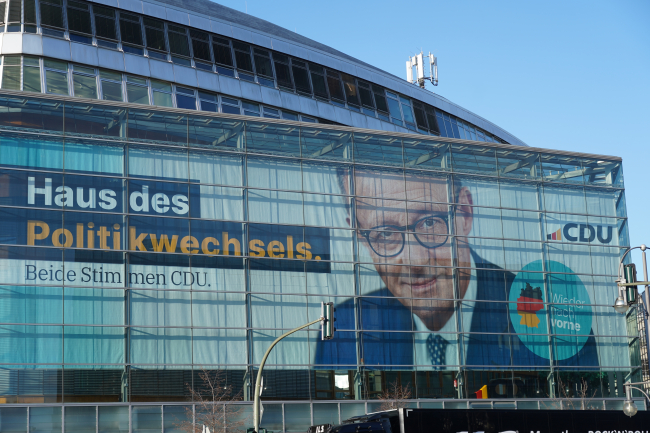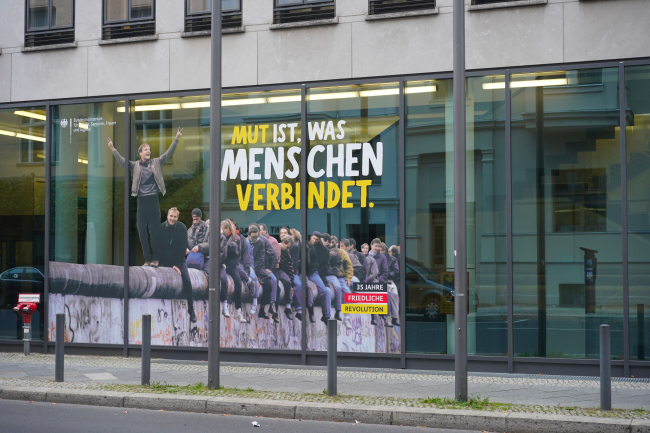The Study Committee on Franco-German Relations (Cerfa)
The Study Committee on Franco-German Relations (Cerfa) was created in 1954 by an inter-governmental agreement between the Federal Republic of Germany and France, in order to raise awareness of Germany in France and analyze Franco-German relations, including in their European and international dimensions. In its conferences and seminars, which bring together experts, political leaders, senior decision-makers and representatives of civil society from both countries, Cerfa develops the Franco-German debate and stimulates political proposals. It regularly publishes studies through two collections: Cerfa notes and studies as well as Franco-German visions.
Cerfa maintains close relations with the network of German foundations and think tanks. In addition to its research and debate activities, Cerfa promotes the emergence of a new Franco-German generation through original cooperation programs. This is how in 2021-2022, Cerfa led a program on multilateralism with the Konrad Adenauer Foundation in Paris. This program is aimed at young professionals from both countries interested in the issues of multilateralism in the context of their activities. It covered a wide range of themes relating to multilateralism, such as international trade, health, human rights and migration, non-proliferation and disarmament. Previously, Cerfa had participated in the Franco-German future dialogue, co-led with the DGAP from 2007 to 2020, and supported by the Robert Bosch Foundation and the Daniel Vernet group (formerly the Franco-German Reflection Group) which was founded in 2014 upon the initiative of the Genshagen Foundation.
Read more

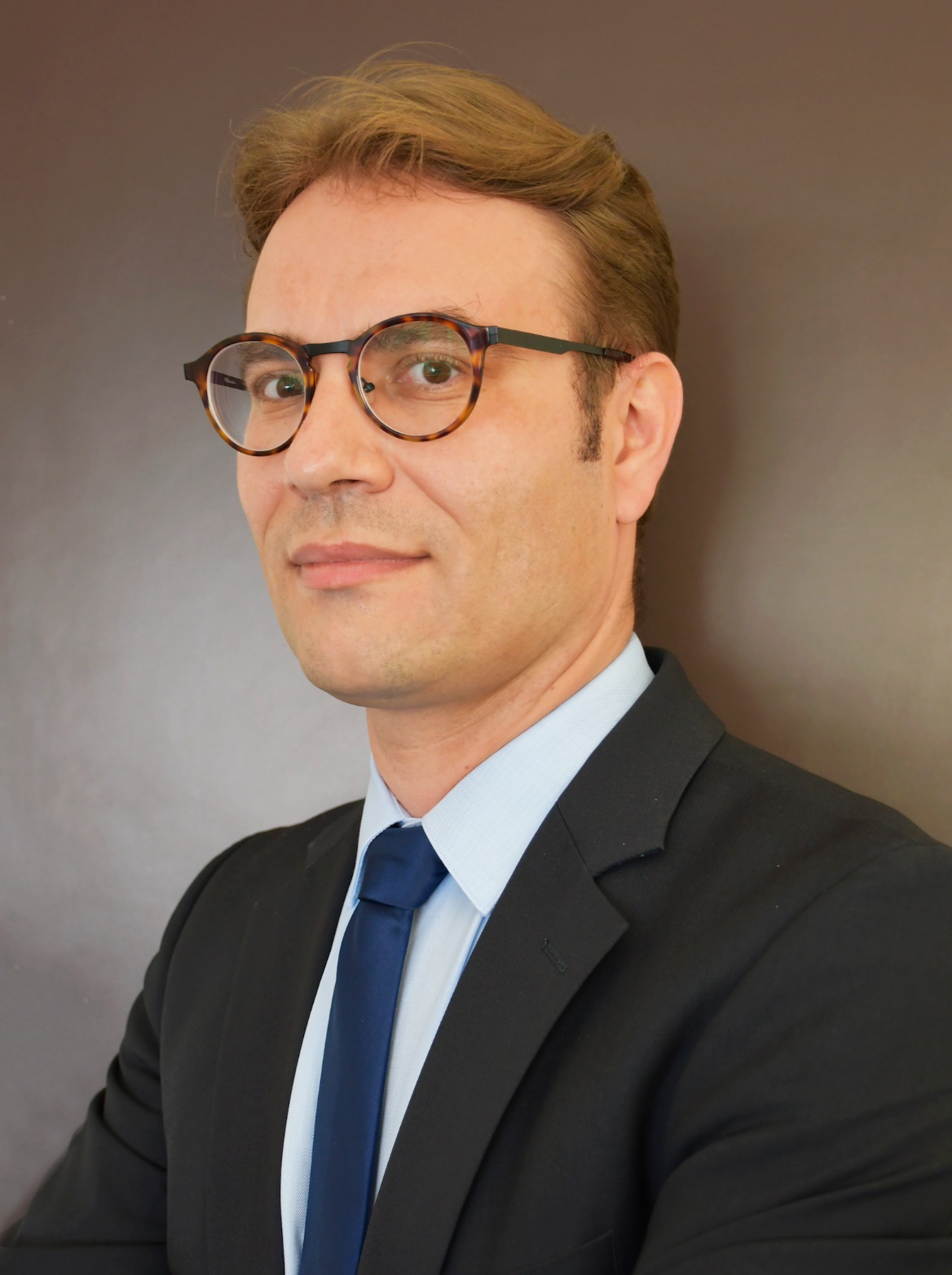
Secretary General of the Study Committee on Franco-German Relations (Cerfa), Ifri
Publications
See all our interventions
Flagship Publications
Titre mis en avant
[Infographics] Early German Federal Elections in 2025: A Comparison of Party Programmes
In the run-up to the German Federal Elections on the 23rd of February 2025, Ifri's Study Committee on Franco-German Relations (Cerfa) is scouring the parties' political programs (internal policy, economy, European issues, Franco-German relations, foreign policy, security and defence policy, etc...)
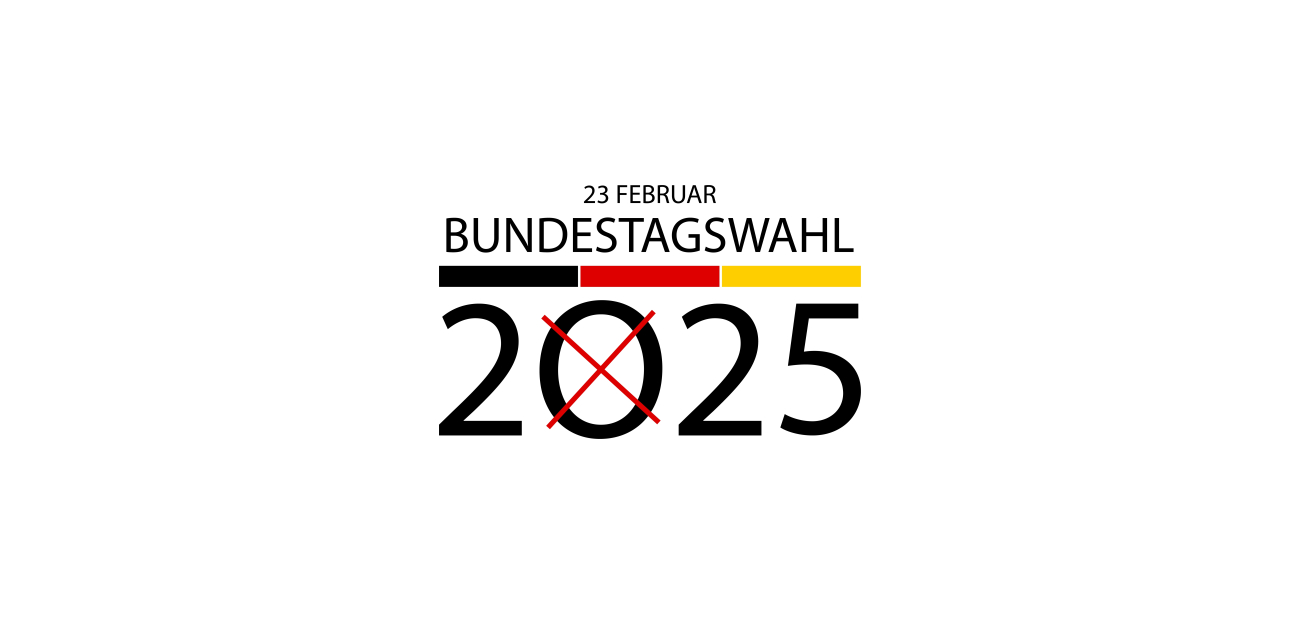
Titre Bloc Axe
Research Areas
See all our interventions
Titre Axe de recherche
Domestic Politics – Elections
The Domestic Politics – Elections research axis within the Committee on Franco-German Relations at Ifri provides an analysis of the German domestic politics, its dynamics, the evolution of the party systems, and the electoral geography of the German Federal Republic. It tackles the relations between the political sphere and society and economic structures. A particular attention is payed to the electoral process in the different “Länder” because of the specificities of the German federal system. The recent political evolutions, with the emergence of new forms of coalitions in the different “Länder” and at the federal level, as well as the persistent differences in the political behaviors between East and West Germany, 30 years after the reunification, will influence political evolutions at the federal level (“Bund”).
The Cerfa at Ifri analyzes these topics along numerous “Notes du Cerfa” and public events which will help understand electoral campaigns, but also the overarching consequences of the election results on the Franco German cooperation at the regional and national level and on the role, Germany embodies on the European and international stage.
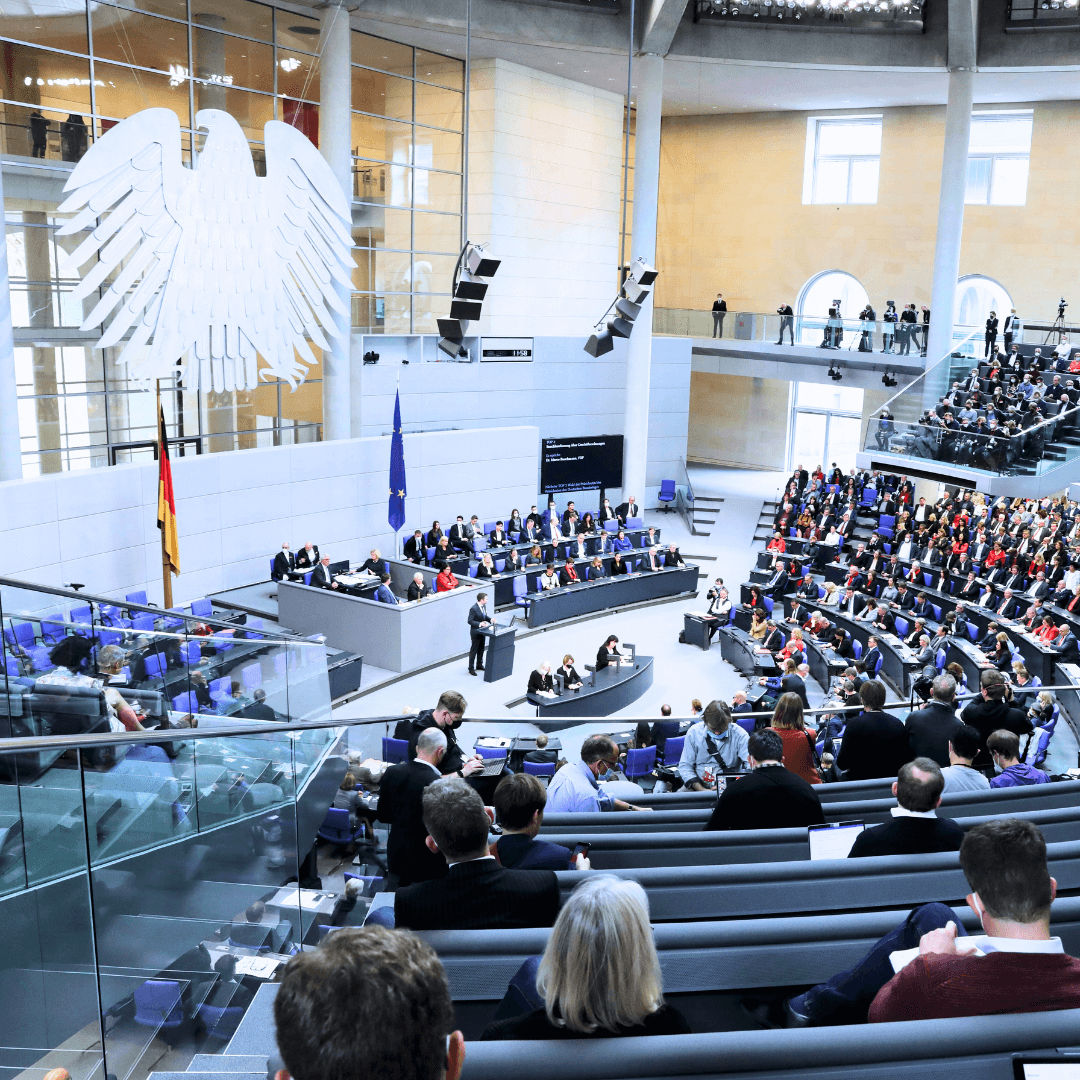
Titre Axe de recherche
Germany on the world stage
In a changing world, Germany is more than ever seen as a factor of stability in the face of increasingly numerous and frequent crises. The longevity of its political staff, the power of its economic model and the appeal of its code of values and principles are certainly not unrelated. It embodies stability but can it also serve as a bulwark against the phenomenon of deconstruction of the multipolar order from 1945? The Islamist terrorist threat, the war in the Middle East, Russian expansionism, the unpredictability of the Trump administration, the rise of populism, the question of opening markets and the uncertainty about the future of the European Union constitute the various elements of a poly-crisis which undermines the foundations of German foreign policy. None of these challenges can be met alone or independently of others. Not to mention the dangers that lie ahead in the longer term.
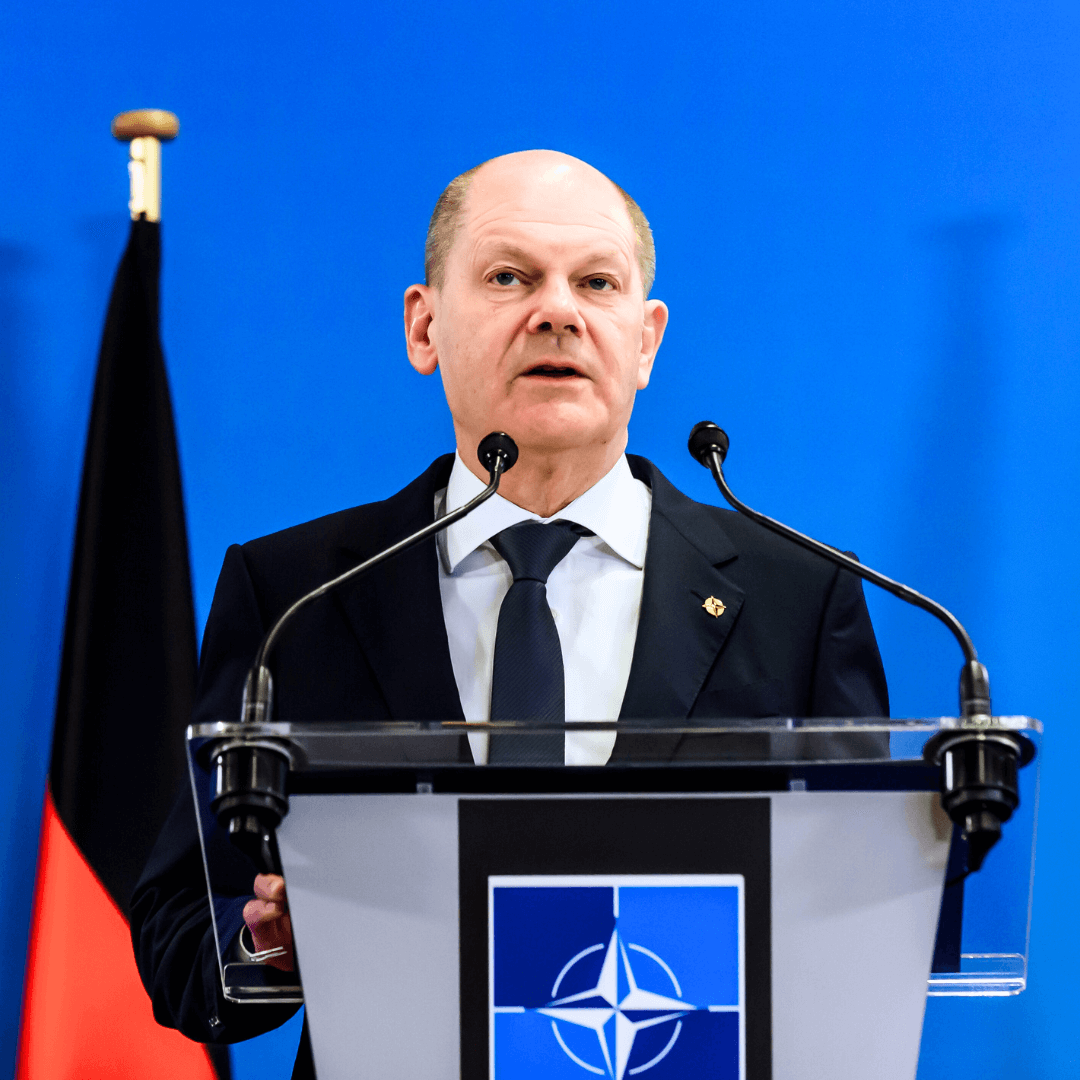

Events
France-Germany, The Engine Under Pressure
German and French Africa Policies in a Multipolar World
Publications
After the Elections: Germany in Search of Shaken Stability?
With a voter turnout of 82.5%, Germany recorded its highest participation since 1987—an increase of 6.1 percentage points compared to 2021. As in the previous election, the high turnout particularly benefited the Alternative for Germany (AfD), which was able to mobilize many former non-voters. Many voters sought to punish the outgoing government with their ballots, as its approval rating had dropped to just 14% before the coalition broke apart in November 2024. Germany is now very likely heading toward a grand coalition between the CDU/CSU and the SPD, with exploratory talks having begun on February 28.
The German Greens as an Alliance Party: The End of an Illusion?
At the Wiesbaden Congress in November 2024, Robert Habeck, currently Minister for the Economy and Climate, was nominated as the Green Party’s candidate for the Chancellorship in the early parliamentary elections on February 23, 2025. The party, founded 45 years ago, is now firmly established in the German political landscape. Wishing to turn the page on an unloved ‘‘traffic light’’ coalition, the party is banking on a personal campaign and an optimistic discourse based on the energy transition and social justice.
The Rise of the AfD and the Choice of Radicalism
Founded in 2013, the Alternative für Deutschland (AfD) has become increasingly radical as crises have unfolded. Since 2015-2016 and the massive influx of immigrants into Germany, it has positioned itself as a virulently anti-migrant party and continues to consolidate its foothold in the German political system, particularly in parliaments. While its roots are very strong in the eastern regions, where its main strongholds are located, it is also attracting more and more voters in the west, against an overall backdrop of normalization of the far right and a national context marked by strong economic and political destabilization.
The Liberal Democrats in the German Federal Elections: A Party Fighting for Survival
The Free Democratic Party FDP, in great difficulty ahead of the early elections in 2025, is trying to recover after the collapse of the coalition with the Social Democratic Party of Germany (SPD) and the Greens. Its wavering position between government and opposition has undermined its credibility, and it is struggling to surpass the 5% threshold.
The SPD in the Run-Up to the 2025 General Election: from Chancellor's Party to Junior Coalition Partner?
The 20th legislative period (2021-2024) came to an abrupt end in the Federal Republic, following the dismissal of Finance Minister and Vice-Chancellor of the Liberal Democratic Party FDP, Christian Lindner, by Chancellor Olaf Scholz, due to deep political disagreements, in November 2024.
Taking the Pulse: Has Political Deadlock in Member States Become a Strategic Problem for the EU?
At a pivotal moment for the EU, several of its member states are experiencing domestic political and economic crises. Is this hindering collective EU action in response to the challenges posed by Russia, China, and Trump’s administration?
The CDU in the 2025 Elections: A Road to the Chancellery, Paved with Challenges
After a legislative session in the opposition, the Christian Democratic Union/Christian Social Union (CDU-CSU) looks set to win the snap elections in February 2025. It is very likely that the country’s future chancellor will be Friedrich Merz.
Germany in the Electoral Campaign to the Early Elections on February 23 - The Challenges of a high-risk Voting
One month before the early Federal Elections in Germany, which will take place on February 23, 2025, after the "Traffic light coalition" imploded on November 6, 2024, the political landscape in Germany appears to be relatively stable despite the rise of the far-right Alternative for Germany (AfD).
70th Anniversary of the Study Committee on Franco-German Relations (Cerfa). Genesis, History and Visions for Franco-German relations
The Study Committee on Franco-German Relations (Cerfa) was created in 1954 by an inter-governmental agreement between the Federal Republic of Germany and France, in order to raise awareness of Germany in France and analyze Franco-German relations, including in their European and international dimensions.
Thirty-five years after the fall of the Berlin Wall: what’s new in the East?
As we celebrate the 35th anniversary of the fall of the Berlin Wall on November 9, 2024, let’s start from the premise that the Berlin Wall did not “fall” on the night of November 9, 1989.
The Team

Our research fellows: The Study Committee on Franco-German Relations (Cerfa)
Support independent French research
Ifri, a foundation recognized as being of public utility, relies largely on private donors – companies and individuals – to guarantee its sustainability and intellectual independence. Through their funding, donors help maintain the Institute's position among the world's leading think tanks. By benefiting from an internationally recognized network and expertise, donors refine their understanding of geopolitical risk and its consequences on global politics and the economy. In 2025, Ifri supports more than 80 French and foreign companies and organizations.






